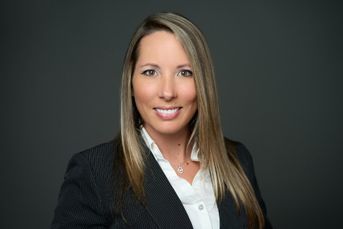Face-to-face fades away

The shift to virtual may have been messy, but new ways of working and communicating have become the norm
If the pandemic experience of the past several months has confirmed anything, it’s that humans are remarkably adaptive.
Face-to-face human interaction has always been a core aspect of the financial advice business. Selecting an adviser, discussing financial and life goals, and regularly reviewing progress traditionally have involved in-person meetings. These interactions helped create the human connections that are the foundations on which advisers have built practices and businesses.
Similarly, visits from wholesalers have been the way advisers and clients learn about new products — as well as the way the creators and packagers of investments market their offerings.
The shift from in-person to virtual communication and work arrangements may have been abrupt and messy, but in a very short space of time the new ways of working and communicating have become the norm. Should virtual interactions remain the default mode of client and work life interaction in the future, which seems entirely possible given the current course of events, the impact on advisers would be far-reaching and profound.
For advisers, a Zoom-based world would mean many practice changes. Marketing, operations, human resources requirements, cybersecurity and even real estate would all be affected.
MASSIVE EVENTS
Consider the massive events held by custodians and broker-dealers, as well as the smaller, more specialized live meetings conducted by organizations — including InvestmentNews. They will continue, but they will change. Even before the pandemic, online versions of adviser-client, adviser-vendor and adviser-adviser interactions were becoming more popular.
New business development in an environment where face-to-face contact is limited translates into the need to create opportunities for interested prospects to find and be attracted to an adviser online. That means advisers will have to become more proactive in creating helpful content that demonstrates the expertise that prospective clients are seeking.
Office operations and the human resources needed in a virtual world demand staff members who excel at self-direction and time management, as well as being able to use all the tech tools in the advisory arsenal. More remote work will speed the transition to digital documentation and the elimination of paper — as well as increasing opportunities for cybersecurity breaches, making cybersecurity even more of a priority.
OFFICE SPACE REQUIREMENTS
Finally, with employees doing more work remotely and fewer clients coming in for consultations, office space requirements will change. Some advisers may find that renting a meeting room on an hourly basis could suffice.
As the past shows, once our behaviors and habits change, we rarely return to our old patterns, even if we recall them fondly. While many advisers were working online and expanding their electronic footprint before the pandemic, the current shift seems more quantum than gradual. If so, future advisers may come to refer to 2020 as the year the business went virtual.
And to be sure, all these important forms of human interaction are likely to return once restrictions are lifted. But if history is any guide, they are likely to return in echo form, as a complement to the new, virtual norm.
Learn more about reprints and licensing for this article.







